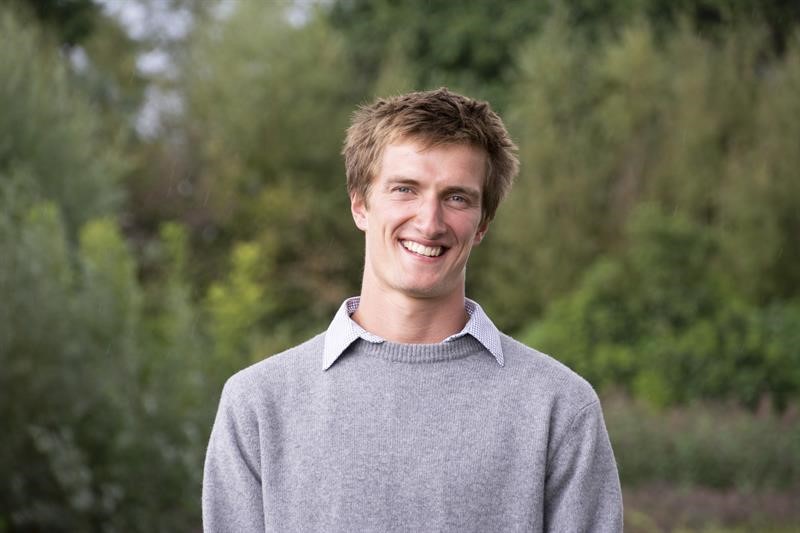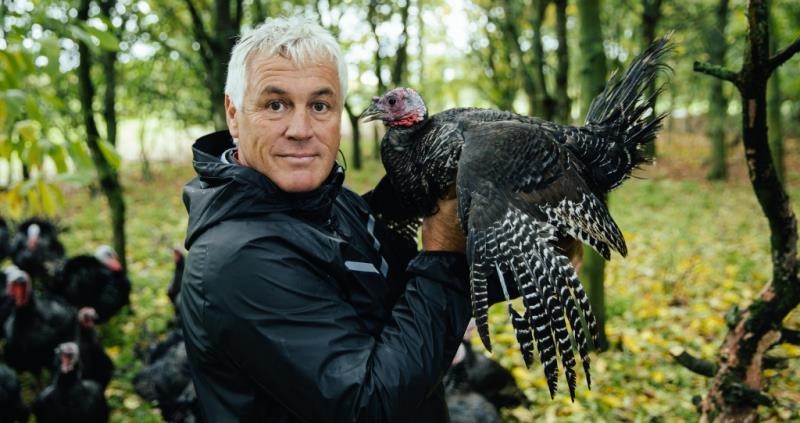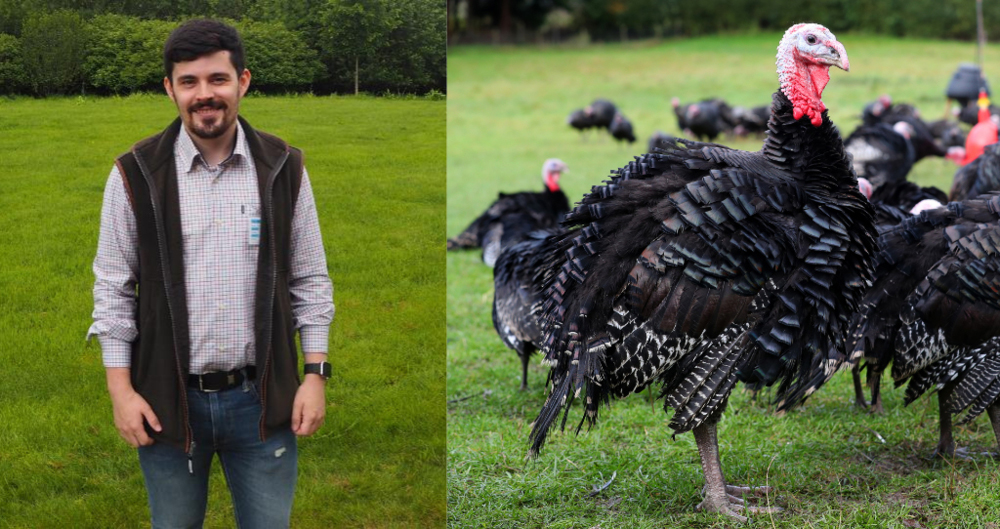I live and work on the family farm in Stranraer, Southwest Scotland. In late 2010 we started out in the poultry industry by putting up two 16,000 bird free range laying hen sheds with all eggs produced going to Noble Foods. Over the next few years we went on to put up six more 16,000 bird units, taking us to a total of 128,000 birds housed and currently we are in the process of further expanding four more sheds taking us to a total of 192,000 birds.
On the latest instalment of our “PIP goes virtual” sessions we heard from the groups very own John Malseed and also Paul Kelly from Kelly Bronze, on seasonal turkey production and marketing directly to the consumer from the farm gate.
To start the virtual session off we first heard from John who, between working with his suckler cows and shearing more than his fair share of sheep, produces 5,500 Christmas turkeys, of which 2,500 are organic, 2,500 free range and 500 are white. All of the birds are slow growing strains that are slaughtered at 23 weeks and then go on to be dry plucked and left to game hang for 10 days to improve the eating quality. The majority of the birds produced are for wholesale and the other 4% head to retail.

Pictured above: John Malseed is a turkey producer from Devon and grows 4,000 turkeys for the seasonal market, of which 50% are organic
John explained how the birds are reared, with them brooding inside cattle sheds and later moving outside at 5-6 weeks into average group sizes of 450. Onto December where it’s time to process the birds.
The effect of the coronavirus pandemic
To finish off his presentation we moved onto the impact that COVID-19 has had on the industry. From ordering the poults earlier in the year when it was difficult to predict what was going to happen later in the year, to the biggest impact being the uncertainty of whether the migrant seasonal workers who want to come over will be allowed to with all the travel restrictions that are in place due to the coronavirus. Furthermore, concerns regarding the lockdown restrictions meaning that Christmas gatherings may have to be smaller than usual, which might lead to some people opting for a smaller turkey.
Adapting to changing markets
The second presentation of the day was from Paul Kelly from Kelly Bronze, starting with an introduction to the business formed in 1971 by his parents, Derek and Molly Kelly. With 38,000 breeders they produce 2.6 million eggs from May to August, supplying 27% of the poults for the UK Christmas fresh turkey market. Hatching an average of 160,000 eggs a week they also grow 52,000 KellyBronze turkeys for Christmas.

Pictured above: Paul Kelly. The Kelly Bronze business dates back to 1971.
We then learnt about how in the 1980’s with the butchers in decline and an oversupply on the wholesale markets of the “normal” white turkey, this led to the Kelly Bronze being created to provide that different, bronze free-range bird. Paul shared the challenges that they faced in doing so, finishing off with the success of launching in the USA in 2012 where there were no slow growing breeds.
It has been a great opportunity to be a part of the Poultry Industry Programme this year, from meeting more young, likeminded people to learning more about the different sectors within the industry as a whole, all while being pushed out of my comfort zone through the likes of media and leadership training!
